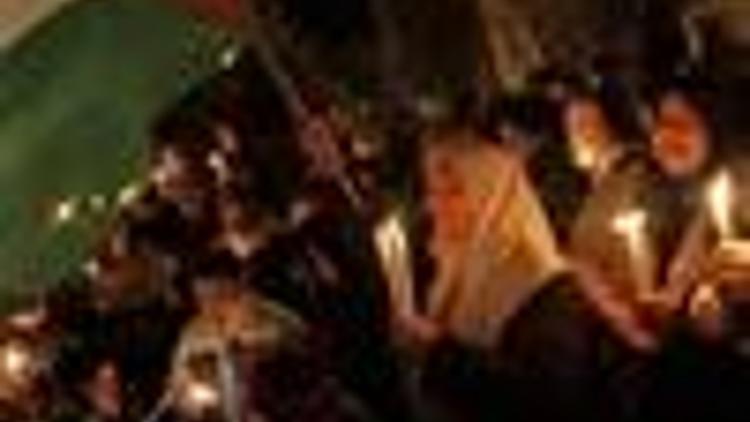Deep Palestinian divide keeps West Bank calm
Güncelleme Tarihi:

RAMALLAH - As Israel extends its deadliest ever Gaza offensive on the 18th day, West Bank is relatively quiet despite appeals by Hamas for a new uprising. The calm in West Bank marks deep Palestinian divide and mistrust of the rival leaders.
Despite an appeal by Hamas for a third Intifada, few in the West Bank appear to have much appetite for a new uprising in a mark of deep divide among Palestinians. The first Intifada erupted throughout the Palestinian territories in 1987 as anger at 20 years of occupation boiled over after six residents of Gaza's Jabaliya refugee camp were run over and killed by an Israeli army vehicle.
But although the death toll from Operation Cast Lead is fast approaching the 1,000 mark, there have been no large-scale protests in the West Bank despite appeals by Hamas supremo Khaled Meshaal. Neither has there been, aside from isolated incidents, an outpouring of attacks on Israeli targets.
"The Palestinian population no longer has any confidence in its national leaders, that's why there has been no mass mobilization against the Israeli operation in Gaza," said Bassam al-Salihi, a leader of the Popular Party. Salihi said the public's disillusionment with their politicians stemmed in large part from their seemingly endless feuds.
A long period of often deadly feuding between Hamas and the Fatah movement of president Mahmud Abbas boiled over into street clashes in Gaza in June 2007, the deadliest fighting between the two camps that ended with the Islamists kicking their secular rivals out of Gaza. "It's both a question of the current division among the Palestinians and the absence of any clear plan for popular action," Salihi said.
Wider split
His view is echoed by Abdelrahim Maluh, a senior official in the leftist Popular Front for the Liberation of Palestine, or PFLP, who said that politicians who expend their energies on intra-Palestinian squabbles are letting down the residents of both the West Bank and Gaza. "These divisions don't reflect the reality among the Palestinian population as a whole," said Maluh.
"Any Intifada that happens now is only going to come about as a result of the social reality and not because of any appeal or order from such and such a leader." However, according to Nader Izzat, professor of sociology at the Bir Zeit University, the divisions among the Palestinian leadership are reflective of a wider split in the population as a whole about how to respond to their plight.
"During the first Intifada of 1987, there was a consensus about the need for an uprising among the population," he said. "But nowadays, Hamas is acting on its own behalf while Fatah is also doing what suits itself best which has left the Palestinian people in a profound state of schizophrenia."
The West Bank and Gaza Strip, physically divided by Israel, have always been marked by their differences - Gaza more traditional, West Bank more secular. That sense of disconnect has been heightened in recent years by the restrictions imposed by the Israeli authorities on traveling between the two territories. Since unilaterally withdrawing its troops and settlers from Gaza in 2005, the people of the strip have been almost entirely cut off from their Palestinian brethren in the West Bank.
Their diverging political paths were also illustrated by the elections of 2006 when Gaza voted overwhelmingly for Hamas while a narrower majority stayed loyal to Fatah in the West Bank. Izzat said divisions had intensified since the death of Yasser Arafat, the veteran Palestine Liberation Organization leader who died in 2004. While Fatah and Hamas were often at loggerheads under Arafat, Izzat said that both sides were still able to rally under the common banner of "a Palestinian state with Jerusalem as its capital."
Both Hamas fighters and Fatah militants carried out suicide attacks at the start of the second Intifada which began in September 2000. But while the Hamas regime in charge of Gaza is still threatening suicide attacks, its Fatah counterpart appears to have lost its stomach for confrontation. An official at the interior ministry in the West Bank administrative capital Ramallah said that "we don't want any more martyrs."

